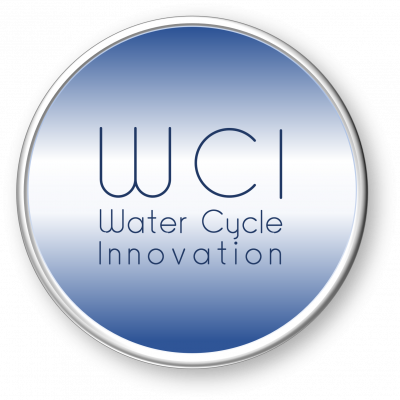Water Cycle Innovation

About us


Water Cycle Innovation (WCI) is a unique consultancy company serving the needs of policy makers, donors, governments, UN organizations, continental/regional institutions, non-governmental institutions (NGOs), and the private sector with regards to water for cooperation, water and food security, and climate resilience – underpinning sustainable development.
WCI supports the identification of approaches, policies, practices, and processes towards more sustainable benefits from managing the ‘Whole of the Water Cycle’ through integrated solutions, evidence-based technologies, and participatory engagement of stakeholders at all levels.
Water Cycle Innovation has a global reach with a geographic stronghold in Africa. It works with a host of partners.

Latest News
Thank You for Your Cooperation in 2023
WCI Highlights from the Second Half of 2023
The UNECE Global Workshop on Conjunctive Management of Surface Water and Groundwater: National to Transboundary Level


WCI Director Karen Villholth (white shirt) forming member of an advisory team to UNECE on groundwater. From left: Marie-Amélie Pétré (Geological Survey of Finland), Alberto Manganelli (CeReGAS), Alice Aureli (previous UNESCO), Shammy Puri (CSSPH), and Arnaud Sterckx (IGRAC) at the UNECE Global Workshop on Conjunctive Management of Surface Water and Groundwater: National to Transboundary Level, Geneva, October 2023.
The UN Economic Commission for Europe (UNECE), with its key mandate for the implementation of the UNECE Water Convention, now counting on 52 country partners globally, works to not only implement tools and agreements for better water cooperation between countries sharing water resources across their borders, but also complements this work with significant supportive and guidance activities. An important one is achieving more coherence in water management and cooperation within and across various water sources, adhering to the fundamental principle of water resources being connected and constituting a unified whole, implying that e.g. groundwater and surface water cannot be managed in isolation.
Groundwater as the Deep-Seated Wealth of Nations
Groundwater management ties closely into understanding and regulating initiatives related to groundwater use and development. Untangling economics and those policies that have economic and socioeconomic implications for groundwater is hence a must. Subsidies for developing groundwater (e.g., for drilling, energy for pumping, and for irrigation equipment), guarantied prices for crops grown with groundwater, etc. are likely among the most effective indirect ways to control groundwater exploitation. With this starting point, the World Bank is heavily engaging in the global partnership for more sustainable groundwater development and use.
Groundwater: Achieving Global Development Goals
Water Cycle Innovation gave significant inputs to other new and highly relevant publications on contemporary groundwater at a global to regional scale. A highly-cited Nature review paper by Scanlon et al. ‘Global water resources and the role of groundwater in a resilient water future’ critically unpacks the trends of water resources across the globe, to find that the interactions between climate, surface water and groundwater leave regions with certain characteristics, e.g. regions with trending depleting groundwater due to a coincidence of high exploitation and little or decreasing rainfall, while other regions have experienced increasing groundwater storages due to changing landuse, going from more water-demanding natural vegetation (typically trees) to crops (requiring less water), while yet other regions have faced stable or growing groundwater resources because of increased rainfall over decadal timescales or because of significant return flows from large-scale surface irrigation schemes. The lesson is that we need to understand water resources in a natural, climatic, and human landuse context.
Fellowship of the Spring


A stethoscope, or thermometer, for gauging the health of groundwater systems is springs. This is because springs and oasis, natural outlets of groundwater flow, are often taletellers of groundwater depletion and even pollution, and many such environments are currently under heavy stress. The paper ‘Fellowship of the Spring: an initiative to document and protect the world’s oases’, by Fensham et al. takes a global health check on springs and oases in the arid and semi-arid regions of the world, along with early global mapping. Springs have immemorial significance for communities and livelihoods, and the health of unique aquatic and terrestrial ecosystems with endemic and yet to be protected biodiversity. Making the ties between the economic as well as existential values of springs gives us the levers to protect groundwater in these threatened systems, but we need to better understand, appreciate, and articulate these assets as we go forward.
Upcoming Events and Water Cycle Innovation Engagement
We are looking forward to 2024, when Water Cycle Innovation will continue its Scientific Programming support to UC Davis and the Water Education Foundation and partners in what will be a game breaking 3rd International Conference on ‘Toward Sustainable Groundwater in Agriculture – Linking Science and Policy, Burlingame, California, 17-20 June, 2024. Lining up some of the world’s leading scientists, policy makers, and implementers in water for agriculture, we will learn about groundwater’s role in agriculture and food production and security and the multifarious challenges and possible solutions – from the breadbasket of the USA, the Central Valley in California, to countries around the world, struggling to sustain hard-won and precious benefits of groundwater and maintaining them for coming generations.

More News
For more news, articles and interesting facts visit our archive. More News

Focus Areas
Transboundary Waters
Water and Food
Water and Climate Change
Water and Ecosystems
Water Governance







